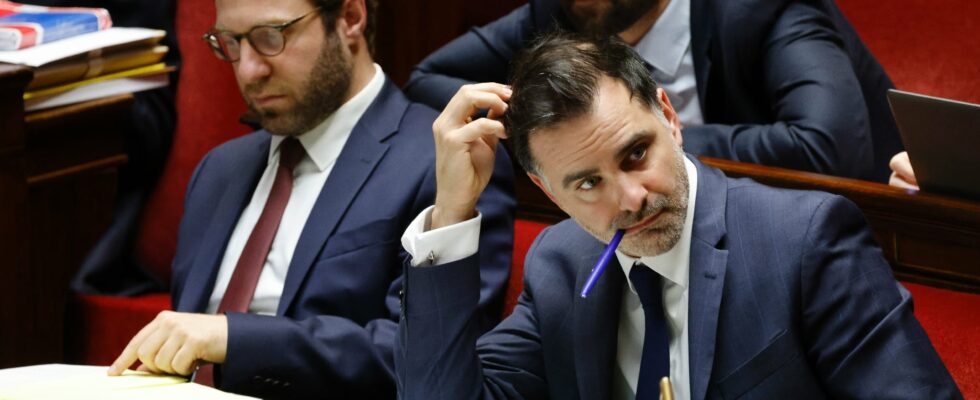It took two major slip-ups for Bercy to decide to seek outside help. In 2023 as in 2024, the Treasury services have not seen substantial drops in revenue coming. On arrival, a gaping hole of more than 40 billion euros in the state coffers, resulting in a deficit expected at 6.1% of GDP this year, instead of the 4.4% forecast by the finance law. This Thursday, November 14, nine experts “from the world of research, control and forecasting organizations and the private sector” met for the first time in Bercy, at the invitation of ministers Antoine Armand and Laurent Saint-Martin .
A cast of specialists, speaking regularly on these subjects: the former magistrate of the Court of Auditors and founder of Fipeco, François Ecalle, the deputy president of the Economic Analysis Council (CAE), Camille Landais, or even the economist Xavier Ragot, at the head of the OFCE. This “scientific committee” will have to work in the coming weeks on improving the precision and management of forecasts. Their work will be used to develop an action plan which will be presented in mid-December. “They do not have institutional roles and will each bring their own vision and elements of proposal,” specifies the office of the Minister of the Economy.
Corporate tax, an unpredictable compulsory levy
Laurent Bach has several ideas in mind. This professor of finance at Essec, co-head of the business center of the Institute of Public Policies (IPP), is also part of this circle. His credo? It is possible – and necessary – to improve the forecasting of corporate tax revenues. Although this compulsory levy only represents less than 5% of our taxes, it nevertheless contributed to more than a third of the gap observed in 2024.
“Corporate tax is based on one of the most volatile elements in our economy: profits. When the economy is turbulent, they tend to vary even more, particularly because many factors do not change not, or very little, like salaries They are the adjustment variable and always overreact,” explains Laurent Bach to L’Express. Added to this is another disruptive element: “Companies pay more quickly when things are going well and later when things are bad,” continues the specialist.
Better collect and target data
Today, companies are required to report a certain amount of information during the year, which feeds into forecasting models. Listed companies are required to submit half-yearly financial reports to the Financial Markets Authority. And those subject to VAT must transmit their statements periodically. “The problem is that they do not declare, halfway through, what their tax profit will be for the year, which remains difficult to predict. This requires a more in-depth analysis,” underlines Laurent Bach.
According to the professor, the Treasury services do not use all the data at their disposal. Starting with those of INSEE. The statistics institute produces national branch accounts each quarter taken from monthly VAT statements sent by companies to… the Directorate General of Public Finances (DGFiP). In a report published last July on forecasts of revenue from compulsory levies, the General Inspectorate of Finance highlighted the need to use this data to refine forecasts.
Still, the task is not easy, recognizes Laurent Bach. He himself tried the exercise during the debates around the tax on superprofits. “I prefer to be modest. At the IPP, we tried to make a forecast of potential revenues, using the data I mentioned. And we were very wrong! We must tame the data and compare them, this can take time. We don’t yet have sufficient expertise to know the right way to use them, there is real intellectual work to be done.” He also calls on state services to be stricter with companies that are not experiencing economic difficulties, but are nevertheless slow to pay corporate tax. The scientific committee, set up by the Ministry of the Economy, will be an opportunity for him to put the subject on the table. “For a researcher, this type of group is very interesting. I am here to learn and discover how things are done, it is not always clear.” The opportunity for these experts to see the Bercy machine from the inside.
.
